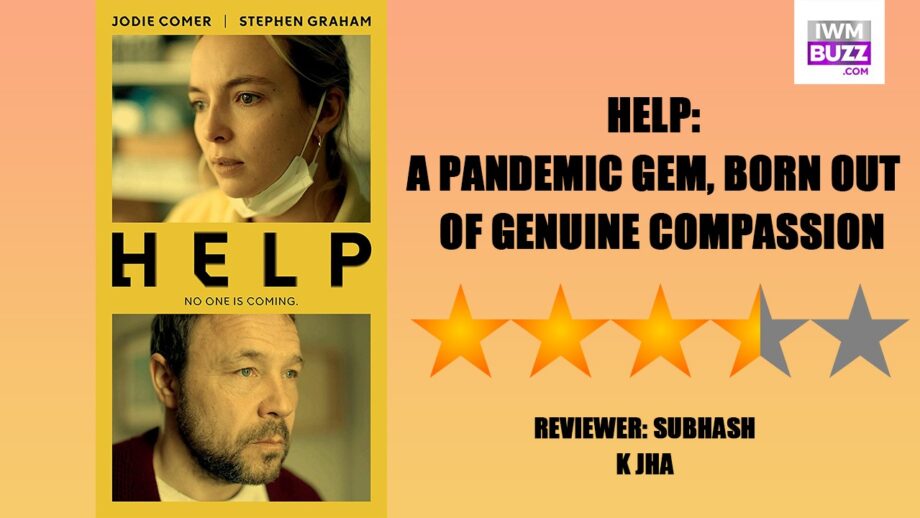Help (Channel 4 TV Film)
Starring Jodie Comer,Stephen Graham
Directed by Jack Thorne
Rating: *** ½
So many films and serials based on the Pandemic have begun to make their way on to various OTT platforms, that it(the Pandemic) has begun to feel like a formula for excess. Using a civilizational calamity to foster instant art is not always an undesirable eventuality. Let’s face it. If it wasn’t for the Nazi holocaust we would’t have got Steven Spielberg’s Schindler’s List.
I can’t express an equal level of appreciation for Help, a Pandemic drama originally made for Channel 4 now , after its steep dramatic impact, available on various OTT platforms. Help does not aspire to be the Schindler’s List of the pandemic era. But it does raise some serious issues on healthcare during the time of Covid crisis when the State machinery gave way to a complete collapse.
Help is set in a healthcare home for the old and the abandoned in Liverpool UK. While it tackles a serious health situation and its deplorably disaffected aftermath, it is also a redemptive story of one woman Sarah , played with disconcerting authenticity by Jodie Comer, who finds her inner strength and a sense of purpose while she struggles with the larger crisis.
This was the redemptive formula used in the Malayalam film Oru Kuprasidha Payyan where Thomas Tovino stands trial for murder while his novice lawyer(Nimisha Sajayan) struggles to find coherence in her life amidst the chaos around her.
In Help, Jodie Comer’s struggle is far more complex. Her parents specially her father think of her as a wastrel. Sarah takes up the job in a care home more out of boredom than any sincere compassion for the aged and the ailing. And you know what, she actually likes her job! Sarah’s actual journey into selfrealization begins when the pandemic kicks in. Suddenly Sarah has more responsibility on her shoulders than she can bear.
There is this effulgently shot sequence on a night when there is no other staff around(they’ve all either fled or fallen ill). A patient takes a turn for the worse. Sarah has no option but to take the help of another patient, a borderline-line Alzeihmer’s patient Tony(Stephen Graham). As the two struggle to keep the dying man alive through a long dark night, the whole passage of one-night-crisis becomes a metaphor for the larger pandemic pandemonium.
In that one night’ s binge of despair anxiety and heartbreak the director Marc Munden condenses the seemingly endless loop of hopelessness in which mankind is trapped .
Towards the bleak finale,the film takes Sarah and Tony out of the care space into the arms of Nature. This is where the film begins to look aspirational. Finally, though, Help ends on an ominous and despondent note where we are informed that all care centres were more or less abandoned by the British government during the Pandemic.
Blending personal anguish with ruthless politics Help gives us one of the most chilling views of what it meant to be old sick and neglected during the Pandemic.


